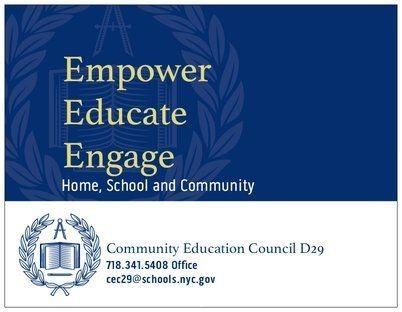Allegations Surface of Vote Blocking by Community Education Council on Transgender Student Policies
The Community Education Council is currently facing criticism amid accusations that it has intentionally hindered the voting process on several resolutions aimed at advancing transgender student rights in local schools. Parents and advocates report that efforts to bring these measures to a vote were repeatedly delayed through procedural tactics, vague explanations, and abrupt changes to meeting agendas, effectively stalling meaningful debate and decision-making. This conduct has raised alarms about the council’s transparency and its willingness to embrace policies that support transgender inclusivity.
An internal investigation has documented a series of contentious meetings where motions related to transgender rights were either deferred or dismissed without thorough discussion. Key issues identified include:
- Unexpected adjournments during pivotal voting sessions
- Lack of clarity in how agendas are set and communicated
- Unequal sway held by council members opposing trans-inclusive initiatives
The table below summarizes recent resolution attempts, council responses, and outcomes:
| Date | Resolution Subject | Council Response | Outcome |
|---|---|---|---|
| March 14, 2024 | Access to Gender-Inclusive Restrooms | Deferred | Vote Postponed |
| April 10, 2024 | Mandatory Anti-Discrimination Training | Meeting Adjourned Abruptly | No Vote Held |
| May 5, 2024 | Updates to Gender Identity Curriculum | Rejected Without Discussion | Failed |
Consequences for LGBTQ+ Students and Community Advocates
The council’s obstruction of votes on transgender rights resolutions has deeply unsettled local LGBTQ+ students and their supporters. Many express feelings of exclusion and marginalization, interpreting the council’s inaction as a dismissal of their identities and needs within the school system. Advocates stress that the blocked measures were intended to create safer, more affirming educational spaces for transgender youth.
Community impact at a glance:
- Heightened anxiety and alienation among transgender students.
- Disappointment among advocates striving for collaborative policy reform.
- Growing disconnect between council decisions and the lived experiences of students.
- Increased demands for transparency and responsibility from elected officials.
| Group | Reported Impact | Advocated Actions |
|---|---|---|
| Students | Feelings of isolation and vulnerability | Call for inclusive curricula and safe environments |
| Advocates | Frustration over stalled progress | Demand transparent and fair voting procedures |
| Parents | Concerns about student safety and well-being | Seek accountability from council members |
Governance Experts Analyze Transparency and Accountability Challenges
Experts in governance and public administration have voiced apprehension regarding the Community Education Council’s recent voting practices, highlighting a troubling trend of opaque decision-making that threatens democratic integrity. Transparency advocates point to the council’s failure to clearly communicate reasons behind procedural delays and the dismissal of transgender rights resolutions as a significant concern, fueling public distrust.
Analysts emphasize that these issues go beyond mere procedural shortcomings, touching on fundamental questions about accountability and meaningful stakeholder engagement. They recommend:
- Establishing transparent voting procedures to prevent deliberate obstruction.
- Ensuring equitable consideration of resolutions affecting marginalized groups.
- Implementing independent oversight to review council decisions impartially.
| Challenge | Expert Suggestion | Anticipated Benefit |
|---|---|---|
| Vote Delays and Obstruction | Set enforceable deadlines for voting | Minimize stalling and promote timely decisions |
| Unclear Communication | Hold regular public briefings on agenda items | Build public confidence through transparency |
| Insufficient Accountability | Introduce third-party audits of council actions | Ensure fair and responsible governance |
Strategies to Promote Fair and Inclusive Voting in Educational Policy
To foster transparency and fairness in educational policy decisions, it is essential to adopt clear procedural frameworks that actively discourage vote obstruction. Agendas should be circulated well ahead of meetings, complete with detailed explanations of each resolution to enable informed participation. Furthermore, councils must create spaces where all stakeholders, particularly those from marginalized communities, can contribute meaningfully by implementing structured public comment periods and moderated speaking times. This approach encourages constructive dialogue rather than procedural delays.
Effective measures to enhance voting integrity include:
- Forming independent oversight bodies to monitor voting fairness.
- Employing anonymous ballots when appropriate to reduce peer influence.
- Providing training for council members on inclusive and equitable decision-making.
- Maintaining real-time digital records of votes and discussions accessible to the public.
- Regularly reviewing and updating voting procedures to address new challenges.
| Recommendation | Expected Benefit |
|---|---|
| Early Agenda Distribution | Improved preparation and engagement |
| Moderated Speaking Opportunities | Equitable platform for all voices |
| Independent Oversight Committees | Prevention of vote manipulation |
| Anonymous Voting Options | Reduced bias and intimidation |
| Digital Transparency Tools | Increased public trust and accountability |
Final Thoughts
As the debate over the Community Education Council’s approach to transgender student rights continues, significant questions linger about its dedication to inclusive policymaking and transparent governance. Community members and advocates persist in demanding greater accountability and more open channels for diverse voices to influence educational policies. The resolution of this issue will likely set important precedents for how schools address the needs of transgender students in the future. Updates will be shared as developments occur.













